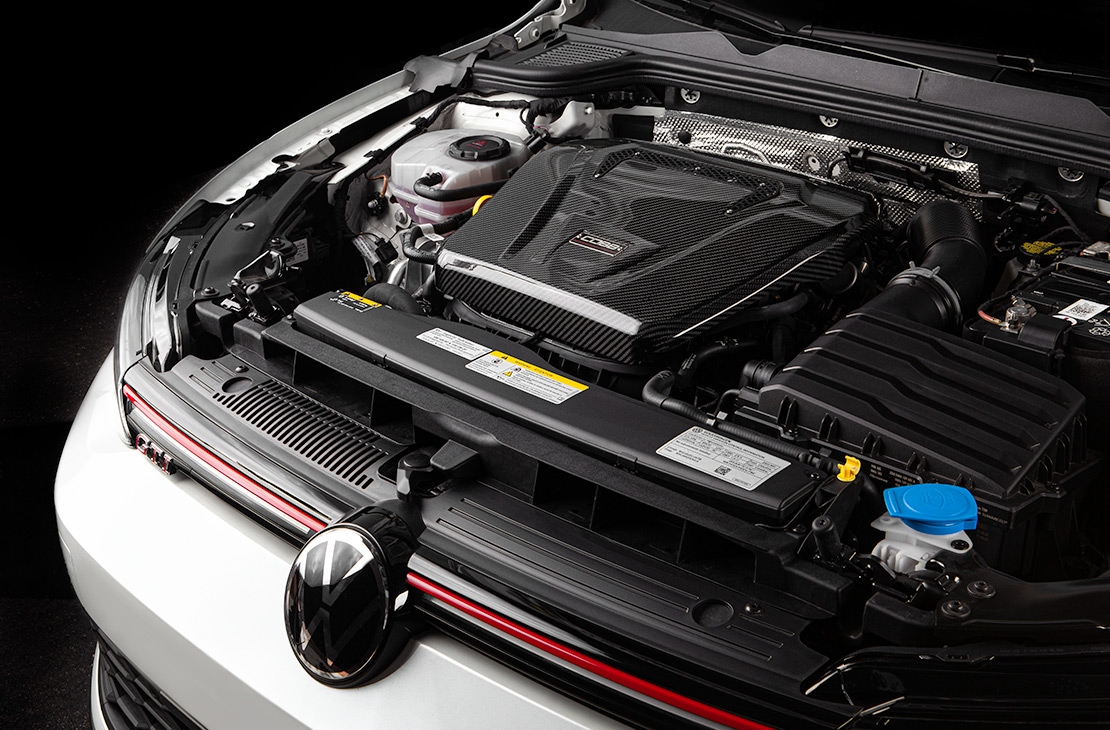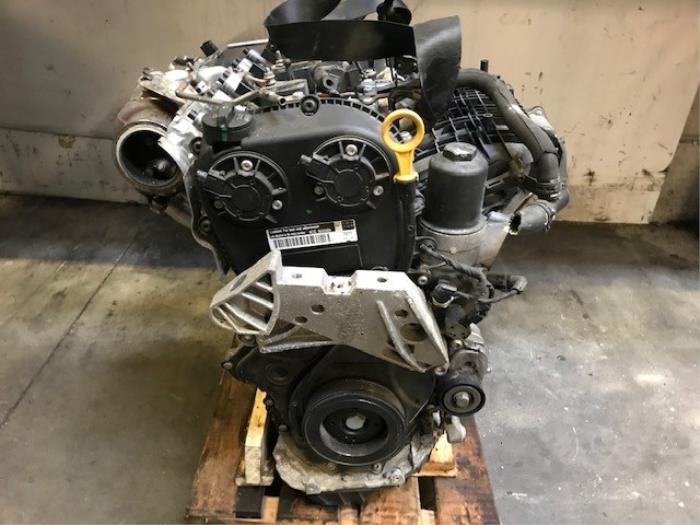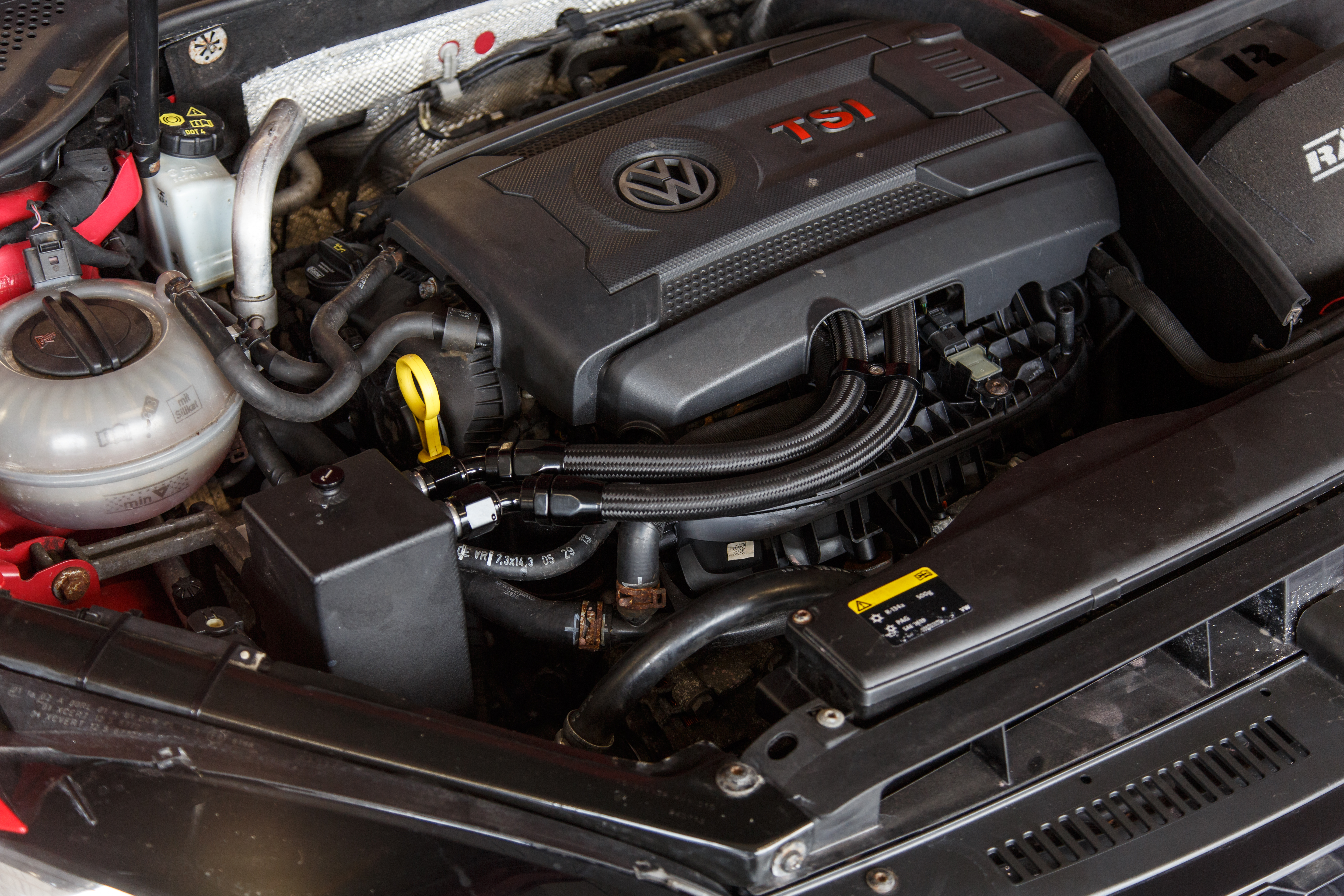How the Golf 7 GTI Engine Compares to Other Engines in the Hot Hatch Segment
How the Golf 7 GTI Engine Compares to Other Engines in the Hot Hatch Segment
Blog Article
Your Overview to the Golf 7 GTI Engine: Reliability and Upgrades
The Golf 7 GTI, geared up with its 2.0-liter turbocharged inline-four engine, represents a balance of performance and reliability that interest enthusiasts and everyday chauffeurs alike. Comprehending the elements that add to its dependability, alongside potential issues and their solutions, is crucial for taking full advantage of the driving experience. Checking out various performance upgrades can dramatically improve both power and effectiveness. The concern remains: what details upgrades can transform your GTI right into a genuinely extraordinary vehicle while guaranteeing its durability?
Summary of the Golf 7 GTI Engine
The heart of the Golf 7 GTI is its 2.0-liter TSI engine, a turbocharged four-cylinder that supplies an excellent mix of power and effectiveness. This engine generates a robust 220 horsepower and 258 lb-ft of torque, permitting the vehicle to increase from 0 to 60 miles per hour in just 5.6 secs, showcasing its flashy character. The turbocharged style not just enhances performance yet also enhances gas performance, making it a useful option for day-to-day driving.
Incorporating sophisticated modern technology, the engine features direct fuel shot, which boosts burning efficiency and decreases discharges. In addition, the Golf 7 GTI is equipped with either a six-speed guidebook or a six-speed DSG dual-clutch automatic transmission, offering motorists with the adaptability to pick their preferred driving style. The vehicle's front-wheel-drive design, integrated with a well-tuned suspension, makes sure dexterous handling and a receptive driving experience.
Engine Integrity Factors
Reliability is an essential element of any type of performance-oriented car, and the Golf 7 GTI's engine is no exception. A number of elements contribute to the overall reliability of this highly regarded powerplant, which is important for both daily driving and spirited efficiency.
Firstly, the Golf 7 GTI is outfitted with a durable 2.0-liter turbocharged inline-four engine, known for its reliable design and strong engineering. This engine includes a forged steel crankshaft and light weight aluminum engine block, which provide premium strength and durability while minimizing weight.
Secondly, routine upkeep plays an important duty in enhancing engine dependability. Sticking to the producer's preferred service periods, making use of premium lubricating substances, and replacing necessary components such as stimulate filters and plugs can significantly prolong engine life.
In addition, the quality of fuel utilized can additionally impact reliability. Premium gas is advised to ensure optimal performance and lessen the threat of knocking or detonation.
Lastly, the vehicle's electronic monitoring system constantly keeps an eye on engine criteria, permitting real-time changes to enhance performance and effectiveness while guarding versus potential issues. Collectively, these factors underscore the Golf 7 GTI engine's credibility for dependability among lovers and everyday chauffeurs alike.
Typical Problems and Solutions
The Golf 7 GTI, while celebrated for its performance, is not without its challenges. Among one of the most regularly reported concerns are engine oil usage and turbocharger failures, which can considerably impact vehicle reliability. Understanding these usual problems and their solutions is essential for keeping optimum engine performance.

Engine Oil Usage
While numerous fanatics value the performance of the Golf 7 GTI, engine oil consumption can emerge as a notable worry. Owners might discover that their lorries need even more regular oil top-ups than anticipated, commonly credited to numerous elements integral in the engine's style and procedure.
One common concern is the engine's direct fuel shot system, which can result in raised oil consumption because of the burning process. In addition, using high-performance driving routines can exacerbate oil burn-off, especially under hostile throttle problems. Chauffeurs might additionally experience oil leaks from seals and gaskets, which can add to reduced oil levels.
To attend to oil consumption, regular maintenance is critical. Routine oil changes utilizing high-quality synthetic oil can assist preserve optimum engine efficiency and longevity. Keeping track of oil levels and carrying out prompt checks can protect against potential issues before they intensify. If extreme usage continues, it might be suggested to consult a professional technician to evaluate the engine for prospective interior issues, such as worn piston rings or valve seals. Adopting these practices can considerably reduce issues concerning oil usage in the Golf 7 GTI, guaranteeing a more pleasurable and reputable driving experience.
Turbocharger Failings
Turbocharger failings can considerably impact the efficiency of the Golf 7 GTI, resulting in diminished power and performance. Common concerns connected with the turbocharger include oil leakages, wastegate failure, and too much shaft play. Oil leaks usually come from worn seals or damaged gaskets, which can lead to oil contamination and succeeding engine damage. On a regular basis examining these parts can assist recognize and reduce such concerns early.
Another common problem is wastegate failing, which can result in overboost or underboost conditions. If left unchecked, this not only impacts the automobile's efficiency but can likewise lead to severe engine damages. Updating to a more robust wastegate can enhance dependability and efficiency.
Too much shaft play shows wear in the turbocharger's bearings, which can result in a complete turbo failure. Keeping an eye on increase stress and paying attention for uncommon sounds can aid detect this problem early.
To avoid turbocharger failures, routine maintenance, including oil modifications and air filter replacements, is vital. In addition, buying high-grade aftermarket parts might give better integrity and efficiency, inevitably improving the driving experience of the Golf 7 GTI.
Efficiency Upgrades to Think About
What performance upgrades can really elevate the driving experience of a Golf 7 GTI? To unleash the full possibility of this legendary warm hatch, a number of targeted adjustments can enhance power, handling, and overall driving satisfaction.
Among the most effective upgrades is a high-performance turbocharger. Changing the supply unit with an aftermarket option can dramatically raise horsepower and torque, delivering an extra thrilling acceleration experience. Complementing this upgrade with an efficiency intercooler assists maintain optimum temperatures, ensuring regular power shipment.
Next, take into consideration upgrading the exhaust system. A much less restrictive exhaust not just boosts engine performance but also generates a more hostile audio that magnifies the car's flashy personality. Pairing this with a remapped ECU will enhance gas distribution and ignition timing, additional increasing efficiency.
Suspension upgrades, such as adjustable coilovers, can enhance taking care of by reducing the vehicle's center of mass and lowering body roll. Additionally, a set of high-performance tires will certainly boost grip, permitting for sharper cornering and enhanced total stability.
Together, these upgrades can change the Golf 7 GTI into a more dynamic and awesome driving machine, making every journey an extraordinary experience. golf 7 gti engine.
Recommended Maintenance Practices
Maintaining the Golf 7 GTI engine requires focus to vital practices that ensure ideal performance and longevity. Normal oil modifications are important for engine wellness, while timely timing belt substitute is vital to stop possible failings. Applying these upkeep techniques will certainly assist keep your vehicle running smoothly and effectively.
Regular Oil Adjustments
Normal oil adjustments are crucial for the optimum efficiency and longevity of the Golf 7 GTI's engine. Keeping a consistent oil modification timetable makes certain that the engine operates smoothly and efficiently. The suggested period for oil modifications is usually every 5,000 to 10,000 kilometers, depending upon driving conditions and the type of oil used.
Making use of top notch artificial oil is crucial as it offers exceptional lubrication and thermal stability compared to traditional oils. This is specifically vital for the Golf 7 GTI, which features a turbocharged engine that creates higher operating view publisher site temperatures. Normal oil adjustments aid to remove contaminants and sludge buildup, which can jeopardize engine performance and lead to premature wear.
In addition, fresh oil boosts fuel effectiveness and decreases unsafe discharges, adding to a cleaner setting. During the oil change process, it is likewise suggested to change the oil filter to ensure optimal filtering and stop any debris from going into the engine. Sticking to these techniques not only aids i was reading this preserve the engine's honesty yet likewise preserves the value of the lorry, making routine oil changes an important element of responsible GTI possession.
Timing Belt Replacement
The timing belt is an important part of the Golf 7 GTI's engine, in charge of integrating the rotation of the crankshaft and camshaft. This synchronization is essential for optimal engine performance and efficiency. If the timing belt falls short, it can result in disastrous engine damages, making prompt replacement important.

When intending a timing belt replacement, it is a good idea to also change the water pump and tensioner. These parts work in combination with the timing belt and frequently experience similar wear, making certain ideal efficiency and longevity. Using OEM components is advised for their reliability and compatibility with the Golf 7 GTI's engine.
Professional installation is extremely encouraged, as inappropriate setup can cause serious engine malfunctions. Routine upkeep of the timing belt not just safeguards the honesty of the engine yet additionally enhances the total driving experience of the Golf 7 GTI. golf 7 gti engine. Prioritizing this job helps preserve automobile reliability and efficiency over time
Aftermarket Parts and Alterations
Numerous enthusiasts turn to aftermarket adjustments and parts to improve the efficiency and looks of the Golf 7 GTI. These upgrades can dramatically enhance the vehicle's responsiveness, handling, and overall driving experience. Popular alterations include high-performance air consumptions, exhaust systems, and intercoolers, which can boost horse power and torque by enhancing air intake and exhaust circulation.
Suspension upgrades are additionally common, with options varying from reducing springtimes to totally adjustable coilover packages that boost ride top quality and cornering ability. Updated brakes, including efficiency pads and rotors, can provide far better stopping power, guaranteeing safety and security and control during perky driving.
Aesthetic modifications, such as aftermarket wheels, body packages, and custom lights, enable proprietors to customize their lorries while keeping a sporty appearance. Engine adjusting, whether through ECU remapping or standalone engine sites monitoring systems, can unlock additional efficiency possibility, making the GTI a lot more electrifying to drive.
While aftermarket alterations can produce significant benefits, it's important to choose reputable brands and think about the potential effect on warranty and reliability. Appropriate installation and adjusting are essential to make sure the longevity of the car while appreciating the improvements.
Enhancing Fuel Performance
Improving fuel efficiency in the Golf 7 GTI can lead to substantial price financial savings and a decreased environmental influence. Accomplishing much better fuel economic situation requires a combination of driving habits, upkeep methods, and strategic modifications.
One efficient approach is adopting a smooth driving style, avoiding rapid acceleration and hefty braking, which can dramatically minimize gas intake. Preserving optimal tire stress is additionally essential; under-inflated tires can boost rolling resistance, bring about lowered efficiency. Regular maintenance, consisting of engine adjusting and air filter replacements, guarantees that the engine operates at peak efficiency, additionally enhancing gas economic climate.
For those seeking upgrades, take into consideration a performance song that concentrates on effectiveness as opposed to large power. Eco-mode setups, if available, can change throttle feedback and shift points to maximize gas cost savings. Additionally, light-weight aftermarket wheels can minimize weight and improve efficiency without jeopardizing performance.
Finally, using aerodynamic improvements, such as a front splitter or back looter, can minimize drag at higher speeds, adding to better fuel economic situation. By executing these modifications and approaches, Golf 7 GTI proprietors can delight in improved gas effectiveness while maintaining the car's perky driving characteristics.
Conclusion
In verdict, the Golf 7 GTI engine exhibits a mix of performance and integrity, driven by a well-engineered 2.0-liter turbocharged inline-four. Recognition of usual issues, such as oil intake and turbocharger failings, together with adherence to suggested upkeep techniques, is essential for long life. In addition, different performance upgrades and aftermarket adjustments can improve driving experience while preserving stability. Ultimately, careful focus to both upkeep and enhancement strategies makes certain the Golf 7 GTI continues to be an affordable selection in the vehicle market.
The Golf 7 GTI, outfitted with its 2.0-liter turbocharged inline-four engine, represents an equilibrium of performance and integrity that charms to fanatics and everyday motorists alike. Routine oil changes using high-grade artificial oil can help preserve ideal engine efficiency and long life.Routine oil adjustments are vital for the ideal performance and longevity of the Golf 7 GTI's engine. Routine maintenance, including engine adjusting and air filter substitutes, ensures that the engine operates at peak efficiency, further improving gas economic climate.

Report this page